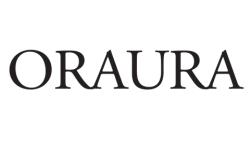What It Looks Like:
The individual reacts to feedback or challenges with defensiveness, denying responsibility or blaming others. They may exhibit a reluctance to accept criticism or acknowledge mistakes.
Jake, a department head, frequently becomes defensive when receiving feedback, immediately justifying his actions and dismissing others’ perspectives. This reaction creates tension in discussions and discourages his team from offering constructive input, hindering open communication and collaboration.
What If:
Overcoming defensiveness isn’t just about accepting criticism, but about how you remain open to feedback and use it to foster growth and build stronger relationships?
After Implementing Behavioral Insights:
Jake focuses on developing emotional self-awareness and a growth mindset. Instead of reacting defensively, he learns to pause, reflect, and ask clarifying questions to better understand the feedback. In his next feedback session, he responds with curiosity, seeks to learn from his team’s input, and expresses gratitude for their insights, which strengthens trust and communication.
Business Impact:
- Enhanced communication: And openness within the team.
- Increased trust: And respect from team members.
- Stronger leadership development: And a culture of continuous improvement.
Contributing Factors (Causes):
- Fear of failure: Or negative evaluation.
- Low self-esteem: Or self-worth.
- Previous experiences: Of harsh criticism.
- Lack of self-awareness: Or personal accountability.
Impact on Individual:
- Negative: Increased stress and anxiety from ongoing conflicts. Potential stagnation in personal growth and learning. Strained relationships with colleagues and supervisors.
- Positive: Awareness of defensiveness can lead to personal growth and improved emotional regulation when addressed.
Impact on Team:
- Negative: Reduced effectiveness of feedback and improvement processes. Increased tension and potential for conflict within the team. Decreased overall team morale and collaboration.
- Positive: A shift toward openness can foster trust and collaboration within the team.
Impact on Organization:
- Negative: Decreased overall productivity and effectiveness. Increased difficulty in addressing and resolving issues. Potential for a negative work environment and reduced employee satisfaction.
- Positive: Addressing defensiveness can create a culture of growth and better communication.
Underlying Need:
- Need for validation: And acceptance.
- Desire to avoid: Perceived threats or criticism.
- Fear of failure: Or loss of status.
Triggers:
- Constructive feedback or performance evaluations.
- Challenging situations or criticism from peers or leaders.
- High-stress or high-stakes environments.
Remedy and Best Practices:
- Foster a culture: Of open and constructive feedback.
- Provide training: On handling criticism and developing resilience.
- Encourage self-reflection: And personal growth.
- Implement support systems: And clear communication channels.
Business Outcomes (KPIs):
- Improved feedback processes: And personal development.
- Enhanced team communication: And collaboration.
- Increased productivity: And employee satisfaction.
- Better alignment: Of individual performance with organizational goals.
Conclusion:
Defensiveness can negatively impact individual and organizational success by reducing communication and collaboration. By addressing underlying needs for validation, acceptance, and growth, and implementing best practices such as training, self-awareness, and support, leaders and organizations can foster openness, trust, and effectiveness.






